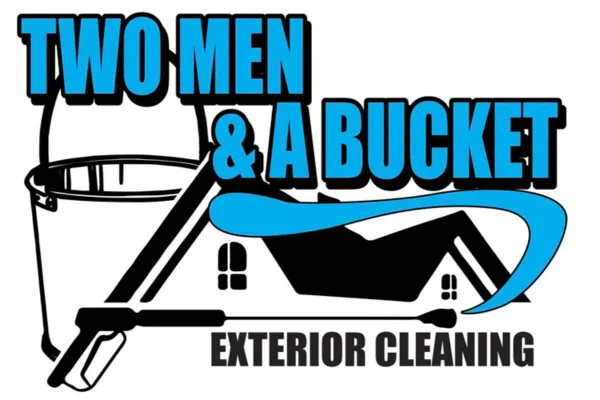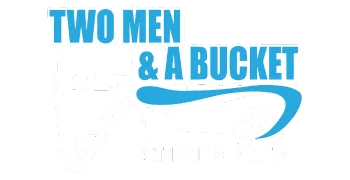Have Questions?
Checkout our blog you'll probably find the answer...

What is the Difference Between Pressure Washing and Soft Washing?

Understanding the Differences Between Pressure Washing and Soft Washing
Introduction: When it comes to exterior cleaning, two common techniques stand out: pressure washing and soft washing. Both methods offer effective solutions for removing dirt, grime, and stains from various surfaces, but they differ in their approach and applications. In this blog post, we'll delve into the key differences between pressure washing and soft washing to help you understand which method is best suited for your cleaning needs.
What is Pressure Washing? Pressure washing is a high-powered cleaning technique that utilizes pressurized water to remove stubborn dirt, grime, and stains from surfaces. This method typically involves using a motorized pump to increase the water pressure, which is then directed through a nozzle to create a powerful stream of water. Pressure washing is ideal for hard surfaces like concrete driveways, sidewalks, and brick walls, where tough stains and grime require a more aggressive cleaning approach.
What is Soft Washing? Soft washing, on the other hand, is a gentler cleaning technique that uses low-pressure water combined with specialized cleaning solutions to remove dirt, mold, mildew, and algae from surfaces. Unlike pressure washing, soft washing relies on the chemical action of the cleaning solutions to break down and dissolve contaminants, making it suitable for delicate surfaces like vinyl siding, stucco, and roof shingles. Soft washing is particularly effective for removing organic growths like moss and algae without causing damage to the surface.
Key Differences Between Pressure Washing and Soft Washing:
Pressure Levels: Pressure washing uses high-pressure water to blast away dirt and grime, while soft washing uses low-pressure water to gently clean surfaces.
Water Volume: Pressure washing requires a high volume of water to achieve effective cleaning, while soft washing uses a lower volume of water combined with cleaning solutions.
Cleaning Solutions: Pressure washing typically relies solely on water, while soft washing utilizes specialized cleaning solutions to enhance the cleaning process.
Suitable Surfaces: Pressure washing is best suited for hard surfaces like concrete, brick, and stone, while soft washing is ideal for delicate surfaces like siding, roofing, and wood.
Benefits of Pressure Washing:
Effective for removing tough stains and grime
Ideal for hard surfaces like concrete and brick
Quick and efficient cleaning process
Benefits of Soft Washing:
Gentle cleaning for delicate surfaces
Effective for removing mold, mildew, and algae
Long-lasting results with minimal damage to surfaces
Choosing the Right Technique for Your Needs: When deciding between pressure washing and soft washing, consider factors such as the type of surface being cleaned, the severity of the stains, and the condition of the surface. In general, pressure washing is best suited for hard surfaces with stubborn stains, while soft washing is ideal for delicate surfaces that require a gentler cleaning approach.
Conclusion: In summary, both pressure washing and soft washing offer effective solutions for exterior cleaning, but they differ in their approach and applications. By understanding the key differences between these two techniques, you can make an informed decision about which method is best suited for your cleaning needs. Whether you opt for pressure washing or soft washing, regular exterior cleaning is essential for maintaining the beauty and integrity of your property. If you're unsure about which technique to choose, don't hesitate to consult with professionals who can provide expert advice and services tailored to your specific needs.
Frequently Asked Questions
Answers To Common Questions
How often should I have my exterior cleaned?
The frequency of exterior cleaning depends on factors such as the climate, level of pollution, and type of surfaces. Typically, it's recommended to have your exterior cleaned annually or bi-annually to maintain its appearance and prevent damage.
What are the benefits of exterior cleaning for my property?
Exterior cleaning not only improves the appearance of your property but also helps prevent deterioration caused by dirt, mold, mildew, and pollutants. It can extend the lifespan of your exterior surfaces and increase the overall value of your property.
Is exterior cleaning safe for my plants and landscaping?
Our exterior cleaning services use eco-friendly and biodegradable cleaning solutions that are safe for plants and landscaping. Additionally, precautions are taken to protect delicate vegetation during the cleaning process.
What are the different methods used for exterior cleaning?
Common methods for exterior cleaning include pressure washing, soft washing, hand washing, and chemical washing. The method used depends on the type of surface being cleaned and the level of dirt or stains present.
How much does exterior cleaning typically cost?
The cost of exterior cleaning varies depending on factors such as the size of the property, the type of surfaces being cleaned, and the level of cleaning required. It's best to request a quote from our website to learn more!
Why should we have our property cleaned?
Just like having your teeth cleaned, it helps prevent bigger, more expensive problems in the future, while making everything look nicer today.
